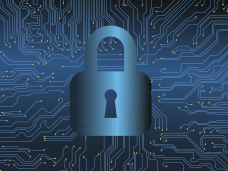With the rise of cyber attacks, there has been significant growth in the search of cybersecurity professionals. And as the position can come with significant pay, as well as job security and the option to work in various industries and sectors, a cybersecurity career is definitely worth considering.
Read on to find out which are the best jobs in cybersecurity and what is their brief description.
What is the hierarchy of Cyber Security jobs
The top position in the cybersecurity hierarchy is Chief Information Security Officer (CISO), followed by the VP Cybersecurity. Then come to the Information Security Director and Information Security Manager, followed by individual contributors (such as analysts, engineers, technicians, architects, testers, cryptographers, and white hat hackers) and at the bottom of the pyramid are the entry-level jobs (junior associates, interns, and apprentices).
Types of cybersecurity
There are different types of cybersecurity, even though on a very basis they all come to the same thing. Essentially, there are five types of cybersecurity – critical interference security, application security, network security, cloud security, and the Internet of Things (IoT). If you are familiar with the first four types, but not with the fifth, as it is fairly new – IoT refers to various cyber-physical systems, such as sensors, appliances, TVs, WIFI routers, security cameras, and so on.
And as the cyber threats continue to evolve and become more and more complicated, the types of cybersecurity jobs also need to change.
Top 10 Cybersecurity Jobs
Here is a list of the top Cyber Security jobs, completed with a brief job description of each of the positions.
Information Security Analyst
An Information Security Analyst is responsible for monitoring and responding to cyber threats that could possibly affect the information network of the organization. Some of the tasks would include performing vulnerability assessments, writing security procedures and policies, and updating frequently security software to avoid threats and breaches.
Cyber Security Analyst
A Cyber Security Analyst’s main responsibility includes designing cybersecurity protection procedures and plans. To do so, one should constantly look for potential threats, install different software, and encryption-related to cybersecurity, report weak spots or breaches and inform other employees about possible security risks.
Security Engineer
A Security Engineer is responsible for the building of security firewalls and systems that protect organizations from cyber threats. The job tasks include performing security assessments, conducting tests, and creating reports for senior management, as well as evaluating new security options and making recommendations.
Chief Information Security Officer (CISO)
A Chief Information Security Officer is the leading cybersecurity position in an organization. The CISO is required to always be aware of potential cyber risk and is responsible for the management of employee access systems and security architect, as well as for ensuring fraud and data loss prevention.
Security Architect
A Security Architect is a well-experienced cybersecurity professional who maintains the security of the computer system of an organization. They study existing security hardware and software and come up with recommendations for improvement, identify weak spots in a cybersecurity system that could be hacked and create specific procedures to take care of threats.
Information Security Manager
An Information Security Manager is a leadership position in a cybersecurity team and is responsible for the protection against security threats. They set up procedures to keep track of computer networks, train employees on security risks and good protection practices, and lead them to respond to potential threats.
Information Security Officer
An Information Security Officer is responsible for the implementation and management of security protection systems that have been put in place by the CISO. They ensure privacy for employees and partners, manage the internal security compliance, and motivate the cybersecurity team.
Cyber Security Specialist
A Cyber Security Specialist monitors and responds to security events to protect against cyber threats. They work together with the other members of the cybersecurity team to analyze and inspect potential breaches and threats, and look for areas that could be improved.
SOC Analyst
A Security Operation Center Analyst’s main responsibilities include monitoring of networks for suspicious activity and potential cyber threats. By evaluating emails, data, and network logs, a SOC analyst is able to find potential breaches and assists the cyber security team to create protective mechanisms against future attacks.
Penetration Tester
Also known as Pan Tester, or an ethical hacker, a Penetration Tester is responsible for conducting tests of established security systems, correcting existing weaknesses in the system, and designing legal hacking tools.



